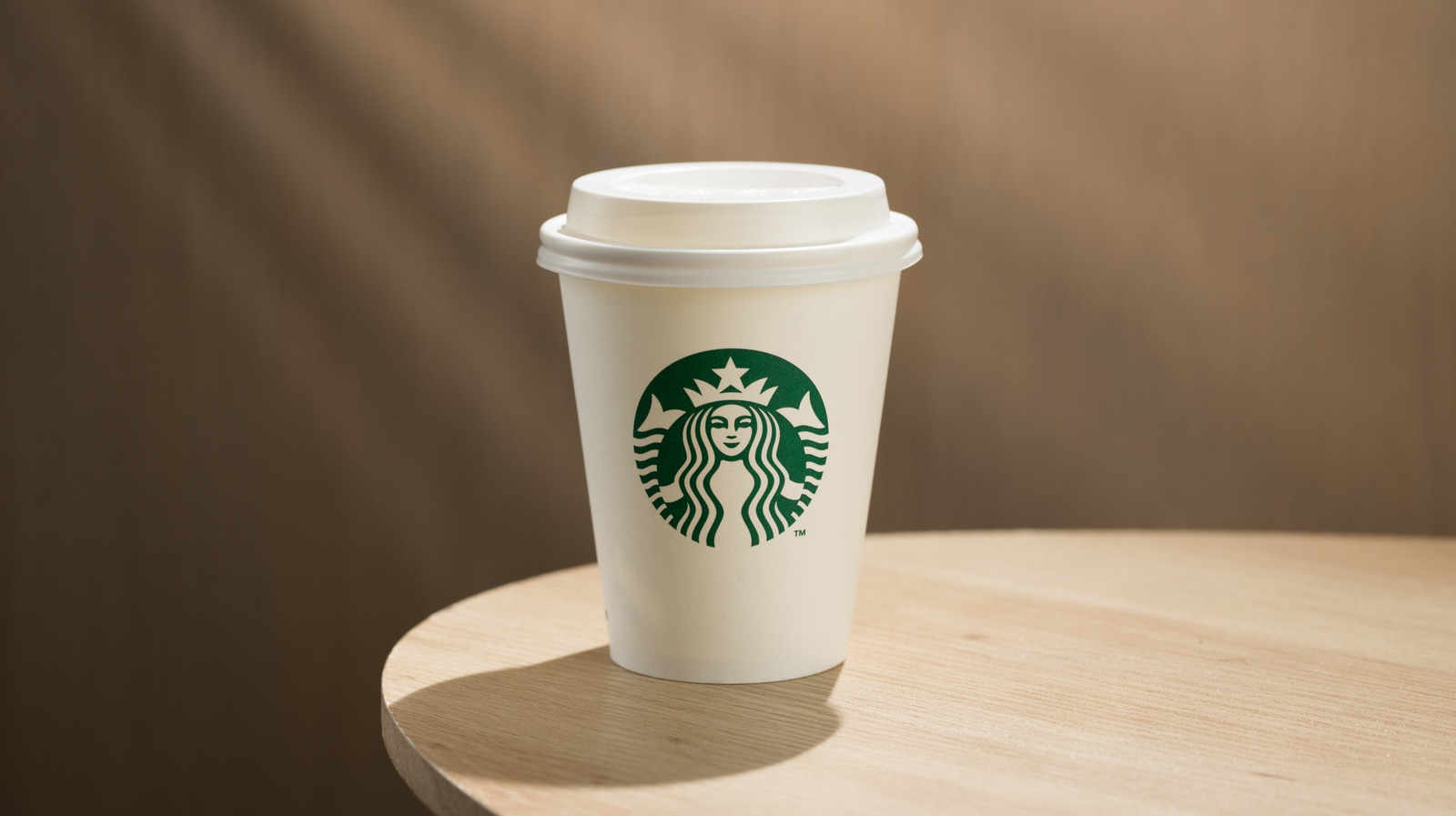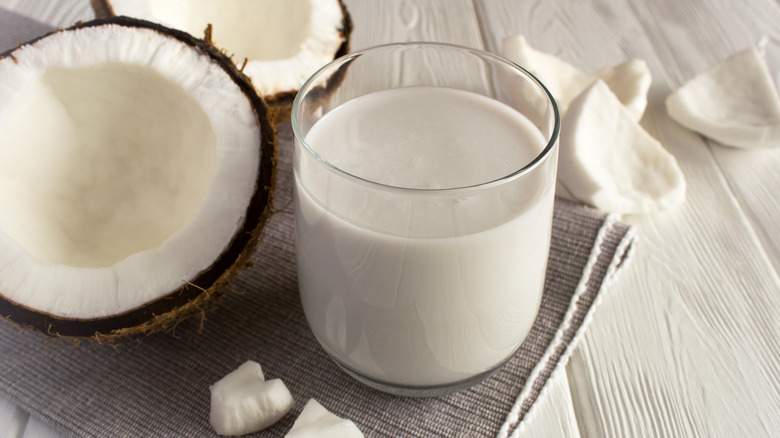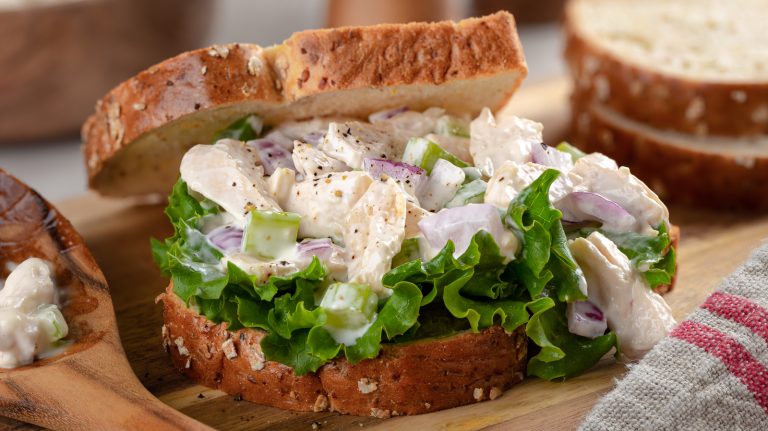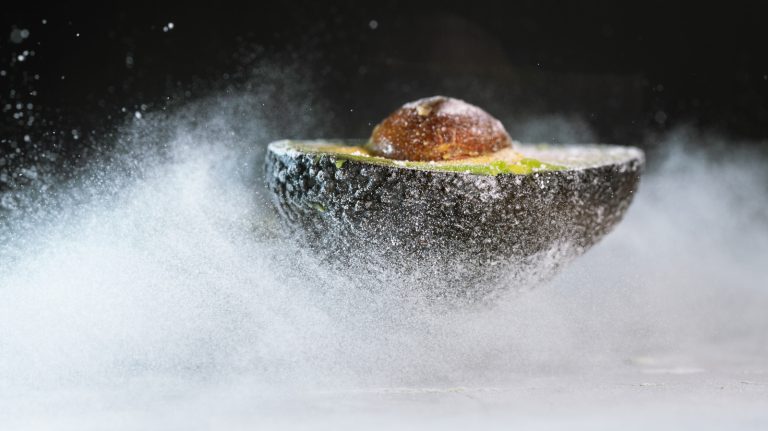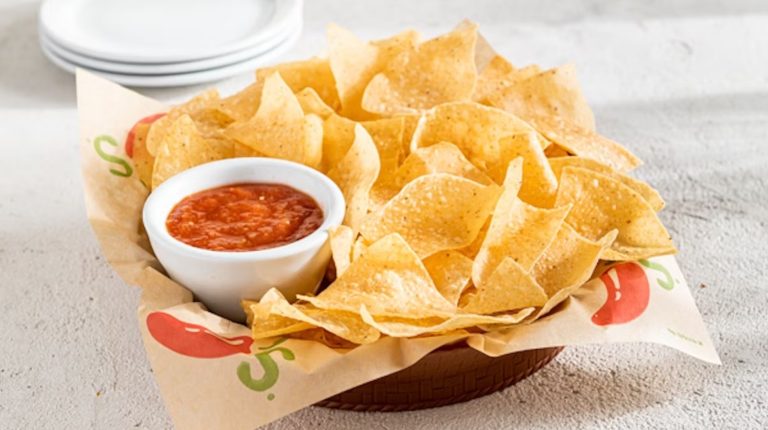Starbucks stopped up-charging its customers for non-dairy milks in November of 2023. Being the second most requested customization from Starbucks customers, the move meant dairy-free Starbucks drinkers would see a price reduction of more than 10% in their orders, regardless of whether they ordered soy milk, almond milk, coconut milk, or oat milk. But, it also increased the likelihood that other, dairy-drinking Starbucks customers would branch out and try the alternatives in their drinks themselves. What didn’t change, on the other hand, was which non-dairy milk you should avoid using in your hot lattes: coconut milk. That much is true whether you’re an alt-milk newbie or self-proclaimed, penny-pinching coffee snob.
Starbucks manufactures its own coconut milk that it calls Starbucks Single Origin Sumatra Coconut Milk — only, it’s not the thick and creamy coconut milk you’re probably imagining. At the time of its debut in 2015, it was one of two non-dairy milk options on the menu. But, even then, it was a thinner, sweetened, and watered-down version of the coconut milk people wanted. While this alternative milk option works well in watery, fruity drinks like the Coconut Refreshers popular today, its texture and tropical flavor do not complement Starbucks’ espresso, nor does it deliver the creamy, frothy, cut-through mouthfeel you look for in a hot latte. In fact, Tasting Table’s taste tester only found it made their latte taste more bitter in their ranking of Starbucks non-dairy milks.
Coconut milk lattes are far from just a Starbucks issue
While this issue could easily be blamed on Starbucks’ coconut milk in particular, it seems to be a common thread at other coffee shops, too. Coconut milk simply doesn’t froth up the way that other alternatives do, requiring a much more finicky approach to achieve anything similar to dairy milk. This is true of all plant-based milks, but when it comes to hot lattes, coconut milk is by far the most temperamental and inconsistent. As a former barista myself, I agree with our taste tester’s opinion that almond milk also doesn’t work well in hot lattes; but given the years I spent crafting hot drinks with them myself, I have to say coconut milk is much worse.
Now, if you’re someone who enjoys iced lattes, both coconut milk and almond milk would make great alternative milk options, because, in this scenario, there’s no heating or frothing involved. Personally, however, I would always recommend opting for oat milk in your hot lattes, and I’m confident that many other baristas would agree. It simply tastes and acts the most similar to dairy milk, producing a smooth and consistent foam that makes beautiful latte art.
The oat milk brand Starbucks uses has a neutral, slightly nutty, and creamy texture that makes it a wonderful experience taste-wise, as well. Plus, being made from oats and not nuts, it’s an option that works for most.


